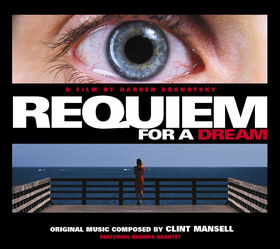300: Atlanteans versus Lemurians
 300 is a 2007 film adaptation of the graphic novel 300 by Frank Miller, itself partly inspired by another film, The 300 Spartans,[1] and is a fictional[2] account of the Battle of Thermopylae in 480 BC. The film is directed by Zack Snyder with Frank Miller attached as an executive producer and consultant, and was shot mostly with bluescreen to duplicate the imagery of the original comic book.
300 is a 2007 film adaptation of the graphic novel 300 by Frank Miller, itself partly inspired by another film, The 300 Spartans,[1] and is a fictional[2] account of the Battle of Thermopylae in 480 BC. The film is directed by Zack Snyder with Frank Miller attached as an executive producer and consultant, and was shot mostly with bluescreen to duplicate the imagery of the original comic book. 300 was released in both conventional and IMAX theaters in America on March 9, 2007. The film broke box office records, although critics were divided over its look and style. Some acclaimed it as an original achievement, while others accused it of favoring visuals over characterization. Controversy arose over its depiction of the ancient world. A group of Persian messengers arrive at Sparta, demanding Sparta's submission to King Xerxes. Outraged and offended at their behavior, King Leonidas and his guards throw the messengers into a pit, resolving to face the Persians. Leonidas then visits the Oracle, explaining his plan of war with the Persians and offers a customary payment in gold. The priests of the Oracle, having already been bribed by Xerxes, interpret her message to mean that Sparta should not go to war, so as to not interrupt the sacred Carneian festival.
Despite the warning, Leonidas gathers 300 of his best soldiers to fight the Persians, selecting only
 those who have already sired male children. As they march North, they are joined by a group of Arcadians and other Greeks. Arriving at the narrow cliffs of Thermopylae (referred to as the "Hot Gates"), in sight of the Persian army, they build a wall to halt the Persians' advance. Ephialtes, a hunchbacked Spartan whose parents had fled to save him from customary infanticide, approaches Leonidas, requesting to redeem his father's name in battle, and warning him about a secret goat path that the Persians could use to surround them. Leonidas turns him away as his inability to properly hold the shield would create a weak spot in the phalanx.
those who have already sired male children. As they march North, they are joined by a group of Arcadians and other Greeks. Arriving at the narrow cliffs of Thermopylae (referred to as the "Hot Gates"), in sight of the Persian army, they build a wall to halt the Persians' advance. Ephialtes, a hunchbacked Spartan whose parents had fled to save him from customary infanticide, approaches Leonidas, requesting to redeem his father's name in battle, and warning him about a secret goat path that the Persians could use to surround them. Leonidas turns him away as his inability to properly hold the shield would create a weak spot in the phalanx.Before the battle starts, the Persians ask that the 300 drop their arms. Leonidas responds; "Persians! Come and take them!" The Spartans use the phalanx formation and hand to hand combat to fight off numerous waves of attackers including Xerxes's elite guard, the Immortals. The 300 defend their position while suffering relatively few losses. Xerxes, impressed, personally approaches Leonidas and promises him wealth and power in exchange for his surrender. The Spartan king declines, saying that he will instead make the "God King" bleed. Shortly thereafter, an embittered Ephialtes reveals the location of the goat path to Xerxes, having been promised a lucrative and powerful position in the Persian Empire.
Back in Sparta, Queen Gorgo, upon the advice of a councilman, attempts to enlist the influential Theron to help her persuade the Spartan council to send reinforcements to Leonidas. Theron agrees to help, but demands that Gorgo submit sexually to him; Gorgo reluctantly assents. Meanwhile, the Greeks realize that Ephialtes has betrayed them, and the Arcadians decide to retreat in the face of certain death. The Spartans refuse to follow, obedient to their law. Leonidas orders only one man, Dilios, to retreat and use his rhetorical skills to tell the story of the 300 to the Spartan people, ensuring that they be remembered. Dilios reluctantly leaves with the Arcadians. At Sparta, Queen Gorgo appears in front of the council, but is not supported by Theron, who furthermore accuses her of adultery. The Queen, enraged at this betrayal, snatches a sword from a nearby soldier and kills Theron. Persian coins fall from his purse, the Council denounces him as a traitor, and unites against Persia.
At Thermopylae, the Persians have surrounded the 300 on all sides. Xerxes's spokesman demands their surrender, saying that Leonidas may keep his title as King of Sparta and become warlord of all Greece, answerable only to Xerxes. In defiance, Leonidas throws his spear at Xerxes, cutting his cheek, delivering on his prom
 ise to "make the 'God King' bleed." Shaken at the reminder of his own mortality, Xerxes orders his archers to fire. The remaining Spartans are killed in the hail of arrows, with Leonidas dying last. Dilios eventually returns to Sparta and inspires the council with the bravery of the 300.
ise to "make the 'God King' bleed." Shaken at the reminder of his own mortality, Xerxes orders his archers to fire. The remaining Spartans are killed in the hail of arrows, with Leonidas dying last. Dilios eventually returns to Sparta and inspires the council with the bravery of the 300.Dilios finishes his tale of the 300 on a new battlefield surrounded by raptly listening soldiers. He concludes that the Persian army, who defeated a mere 300 Spartans a year earlier with great difficulty, must now be terrified to face 10,000 Spartans and 30,000 Greeks from the other city-states. The roused Greek host heads off to fight the Persian army, beginning the Battle of Plataea.



































































































